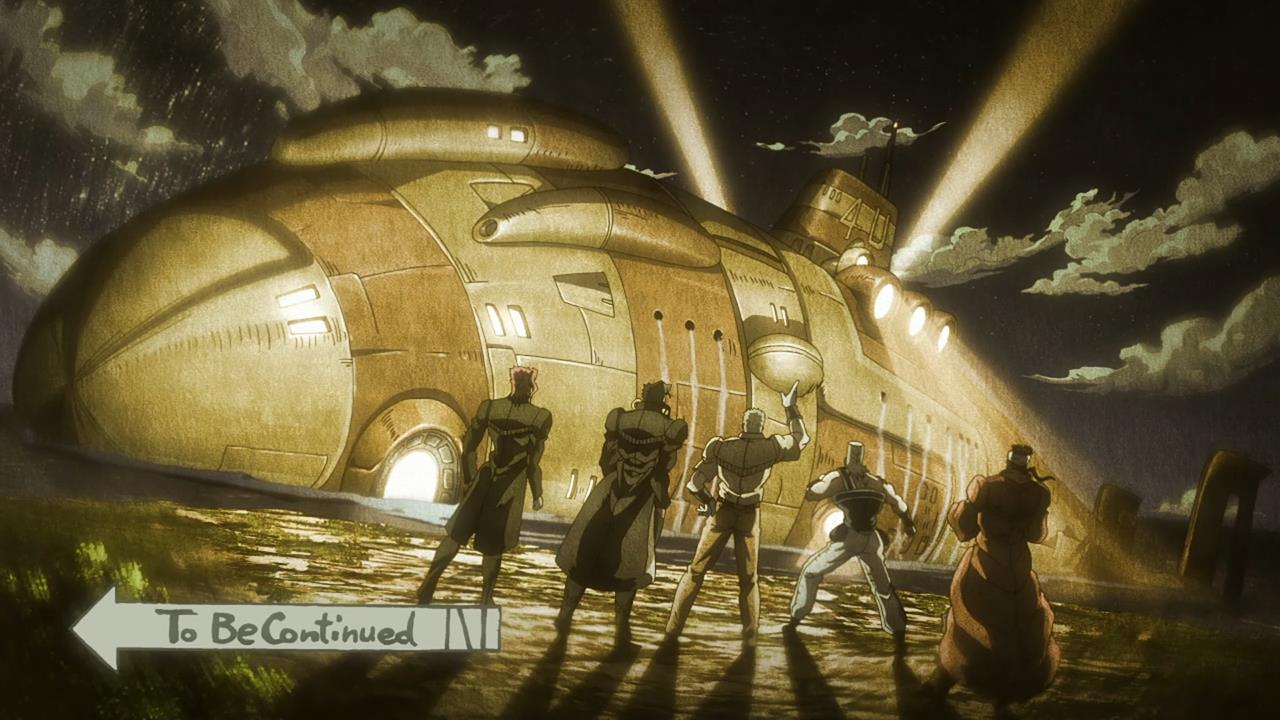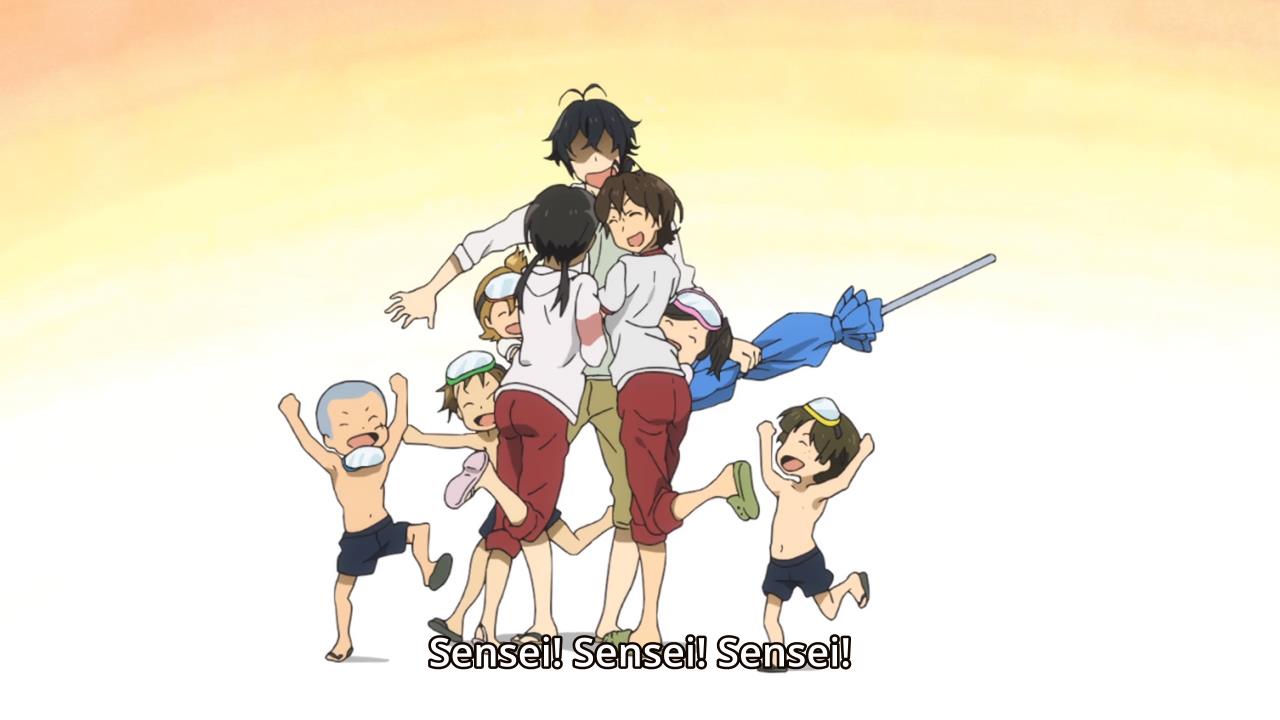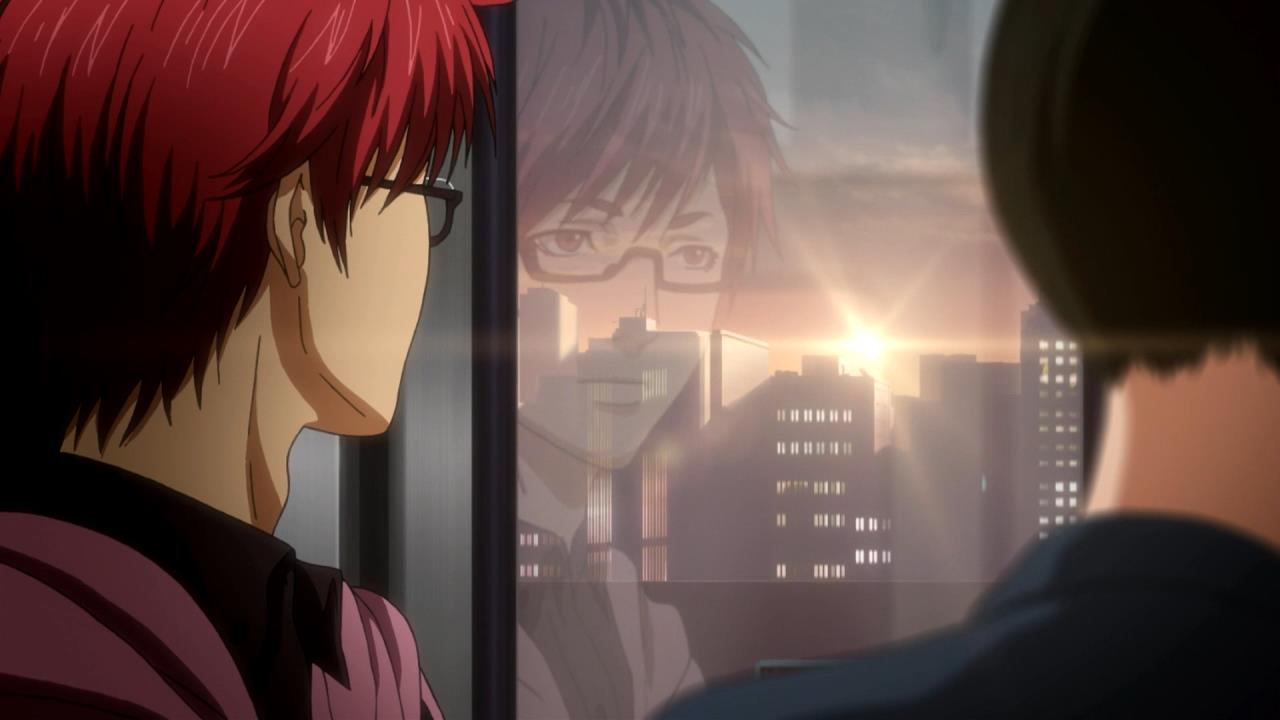Aw shit, started on my full show reviews! First up is Stardust Crusaders Part One, which in my expert opinion is pretty good I guess. It took me a while to get set up for these posts, but I’ll probably be posting reviews on a near weekly basis from here on out. CHEER FOR ME, SENPAI.
Category Archives: Review
Terror in Resonance and the Shadow Children
“When heaven has a line around the corner,
we shouldn’t have to wait around and hope to get in
if we can carpenter a home in our heart right now
and carve a palace from within.”
– The Antlers“Tramps like us, baby we were born to run.”
– Bruce Springsteen
The world is against us, but the world is at our backs. The future could be ours, or there might just not be a future. There’s no “outside” of what we’re escaping, but we move forward anyway. Our only certainties are the wind, the darkness, and the distant horizon.
We live in the shadow of a great and terrible machine. That’s Terror in Resonance’s opening assumption; an assumption the show often takes very literally. Its characters weave in and out of society’s sunlit face and shadowed reality, and the rigidity of our modern social order is perhaps the show’s single constant antagonist. Whether they struggle against it or accept its presence, it is always there, always dictating the lives they may live. Terror in Resonance is a story of adolescent rebellion and societal alienation. It is a story of what the world demands of us, and what we become in its eyes. It is a story of anyone who is cast as a child by the world, and of the things only children can do.
Barakamon – Episodes 1-8 Overview
And here is the last of my first wave of ANN posts, acting as more or less an overall review of the first two thirds of Barakamon. Look at that, I can put on a weird hat and almost pretend I’m a normal reviewer!
Shounen Hollywood – Episodes 1-8 Overview, Episode 9
Aaand here’s my next piece, covering both the first eight episodes and then the newest one separately. I picked this show up out of necessity, but it’s actually been quite enjoyable, and much smarter than you’d expect from an idol show. I legitimately recommend it to anyone looking for a show about the cynical side of the entertainment business, or a more meditatively paced slice of life in general.
Ping Pong and the Courage to Fall
“A new age has come, but I still can’t get out of this rut
And it’s too straight and narrow, no escape routes around…”
Tadahitori
“Staking your life on ping pong is revolting,” says Smile, the ostensible “protagonist” of Ping Pong. In the context of a sports show, that seems kind of like sacrilege – what can be more important than giving it your all, than pinning your hopes on the pursuit of a crazy ping pong dream? But in the context of Ping Pong, his words make sense – because Ping Pong isn’t really much of a sports show. The matches are emotive and interpretive, the “training arcs” don’t exist, and instead of characters learning new techniques, we get rambling Christmas song montages. There’s no romance in believing in victory here – in the context of Ping Pong, Smile’s belief in a hero that will save him seems to almost be some kind of ironic joke.
Shiki and the Setting Sun
I’m kind of tired of vampires, you guys.
At this point, they seem just generally kind of played out. They suck blood, they sometimes turn into bats, they originally meant “fear of feminine sexuality” and now mean “sexy danger.” Sexy danger is pretty cool I guess, but if you keep using vampires to be dangerously sexy, eventually the spark fades. The current wave of trashy vampire romances certainly hasn’t helped, but vampires have always had a ceiling on their resonance as long as they stuck to the old model of what vampires really are.
Fortunately, Shiki thinks vampires are something very different.
Sekai Seifuku and the Island of Misfit Toys
“So they make it back and when everybody hears their story, they start to realize… maybe they were a little hard on the misfits. Maybe misfits have a place, too.”
My mother loves Christmas. Not for any religious reasons – my family has pretty much always been a bunch of godless heathens. But because it’s a family holiday. Because it means time spent together, and the opportunity to express how much you care about those you love. I’ve always had a loving family, for which I count myself lucky. And one memory I always associate with Christmas is that old stop-motion Rudolph movie, where Rudolph meets an elf who wants to be a dentist and goes on all sorts of strange adventures.
The movie’s pretty great, actually – it’s whimsical and endearing and clearly made with a great deal of heart. But at the center of a movie that with every fiber of its existence wants to stress the importance of being together with those you love, the main characters find themselves visiting a strange place that threatens the exact opposite – the Island of Misfit Toys. On this frozen, forbidding rock, toys gather that have been rejected by the world – toys that don’t fit into the roles they’ve been assigned, toys that fail to live up to their owners’ expectations. Though strange and laden with melancholy, these toys end up gathering together in the wilderness, making a family of their own and awaiting the day the world will accept them once again.
Kill la Kill and Grounded Conflict
So. Kill la Kill.
Alright, I guess we gotta start this one right at the beginning. Kill la Kill is the first full-length production by Studio Trigger, a new studio whose claim to fame is sucking Gainax dry of all the talent they had left during the Gurren Lagann/Panty and Stocking era. Or, well, at least the one piece of talent most closely associated with that era – Hiroyuki Imaishi, the director of both those shows. Imaishi’s style, frenetic and impressionistic and somewhat uniquely indebted to western cartoons, is really friggin’ popular – Gurren Lagann in particular is one of the most beloved shows in the western fandom, and in spite of its recent mud-dragging, the Gainax name still conveys nostalgia and magic for a lot of fans.
So Kill la Kill came out of the gate with some pretty heavy expectations on its shoulders. With the writer and director of Gurren Lagann reunited for a show that gave every indication of being as hot-blooded and stylish as its predecessor, it’d be difficult for any show to really please everyone.
Fortunately, Kill la Kill is extremely good at pleasing people.
Let’s Die Together: Diebuster and Oblivion
“Like a trash can fire in a prison cell,
Like the search lights in the parking lots of hell.
I will walk down to the end with you
If you will come all the way down with me.”
– The Mountain Goats, Old College Try
Set eleven thousand, nine hundred and ninety years after Gunbuster, Diebuster tells the story of a new hero – Lal’C Mellk Mal, who befriends the chipper robot Nono. Unlike Noriko, Lal’C begins our story a hero – not just one of the rare Topless, adolescents who pilot Buster Machines to defend the human race, she is the “curve breaker,” envy of her peers. A bright star, casting a light for all of humanity. And she’s proud of this – though she feigns indifference, in truth she exults in her position, cherishing the adulation she receives. Lal’C Mellk Mal exemplifies the power of youth, and in Diebuster, youth is not simply something to be coveted – it is a tangible power in this world.
Performance, Identity, Eternity: Revolutionary Girl Utena
I’m finding it difficult to come up with a proper introduction for this piece. But that’s not my fault, I’m pretty sure – really it’s Utena’s fault. Because Utena isn’t just one show – it’s closer to half a dozen all at once, though they’re really all sides of the same show, and though its disjointed pieces seem to spire out in all manner of directions, they end up saying many of the same things. And I’m sure none of this is helping to describe the show, either.
Let’s start over.
Revolutionary Girl Utena is a good show. One of the best, in fact – I’ve heard it described as the shoujo Evangelion, which is a kind of awkward title, but I can get where that’s coming from. In the most reductive view possible, it does indeed do something similar to Evangelion – cataloging truths of adolescence and identity (as well as gender and perception, its own added priorities) in terms of revolution and apocalypse. But framing it as a simple metaphor denies one of the central truths it’s presenting, and why its choice of vehicle is more than just a grand stage for some grounded revelations.
Although it certainly is a grand stage. Revolutionary Girl Utena is nothing if not theatrical.
Let’s start there – with how the tricks of theater and stagecraft define Utena’s goals, Utena’s world, and the lives of those trapped within that egg’s shell.



